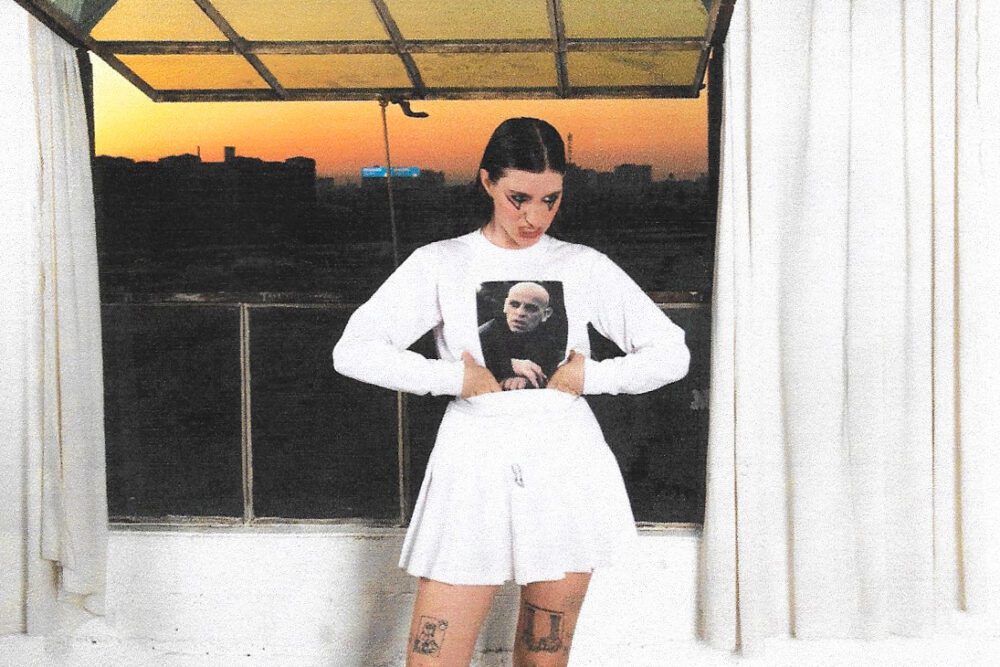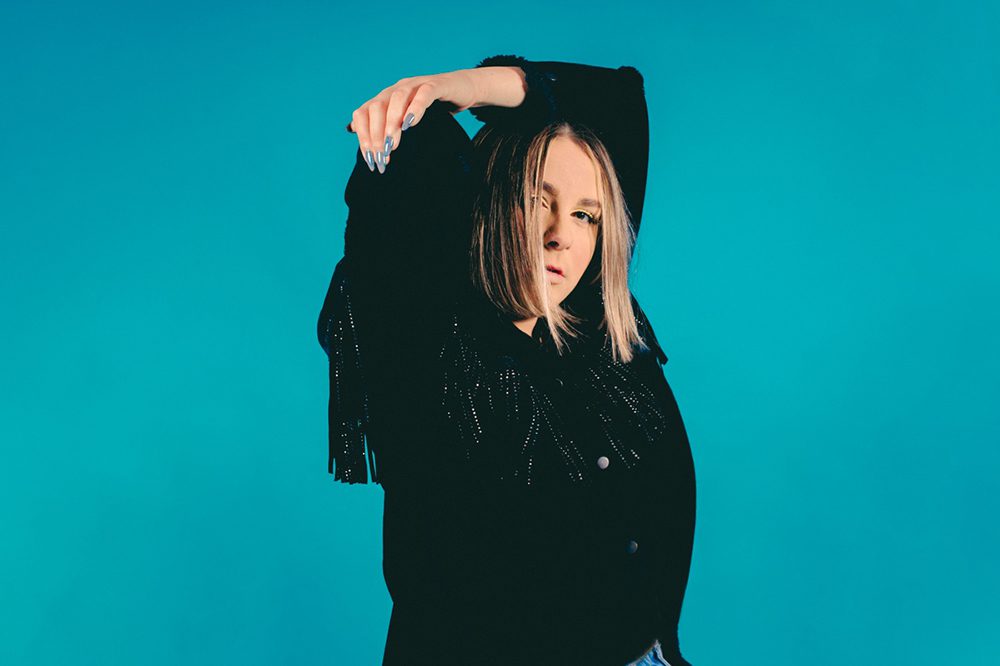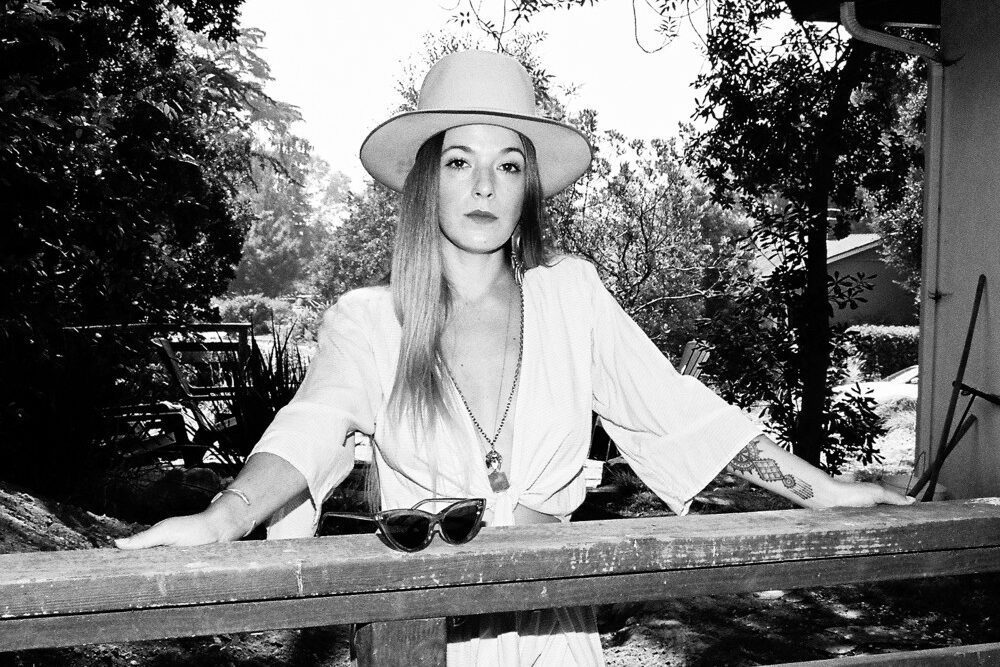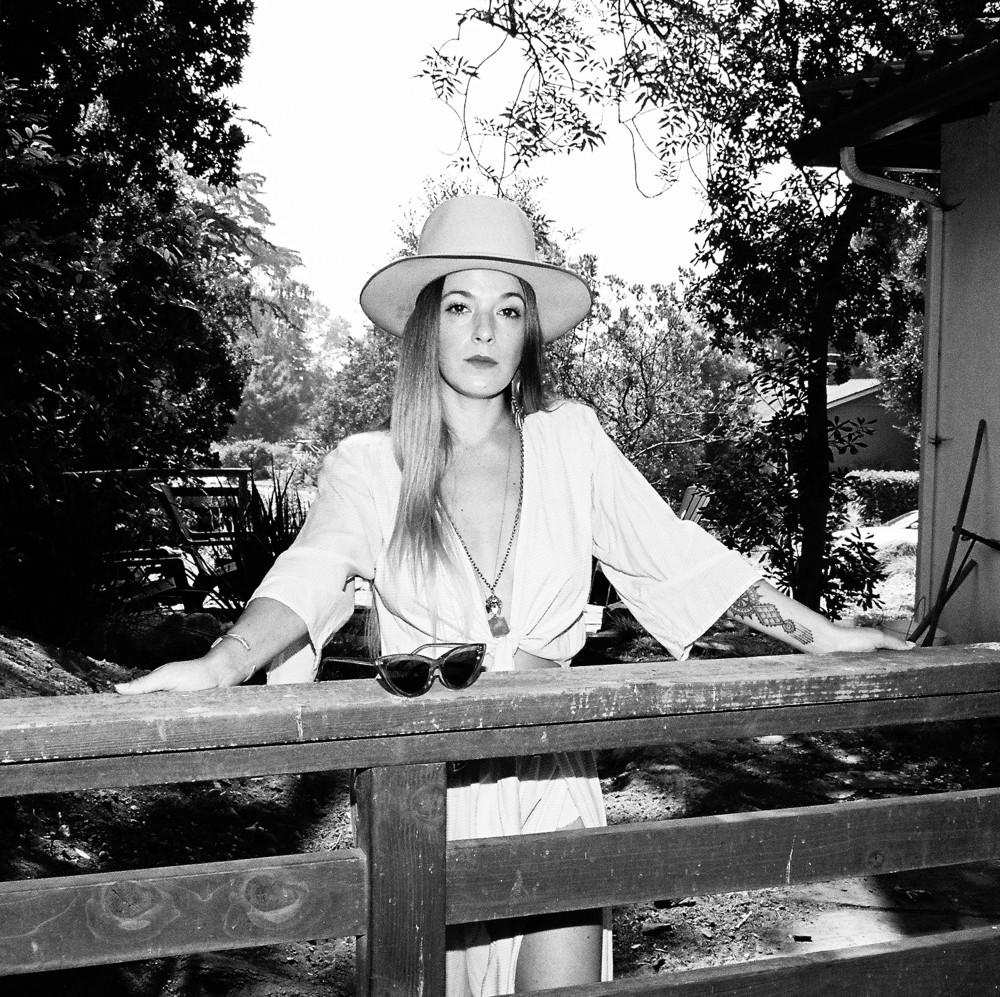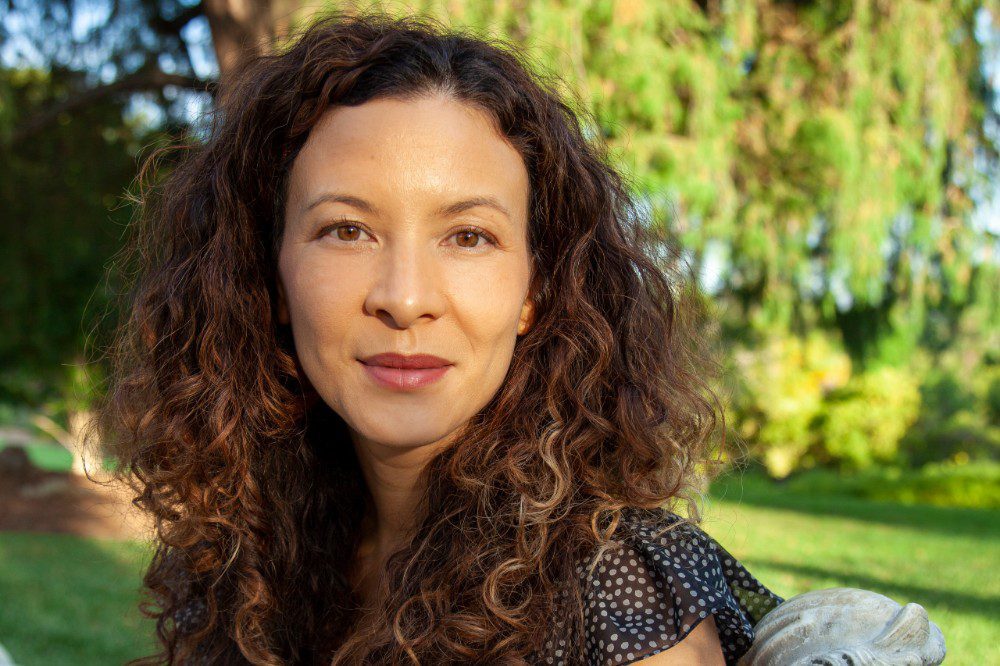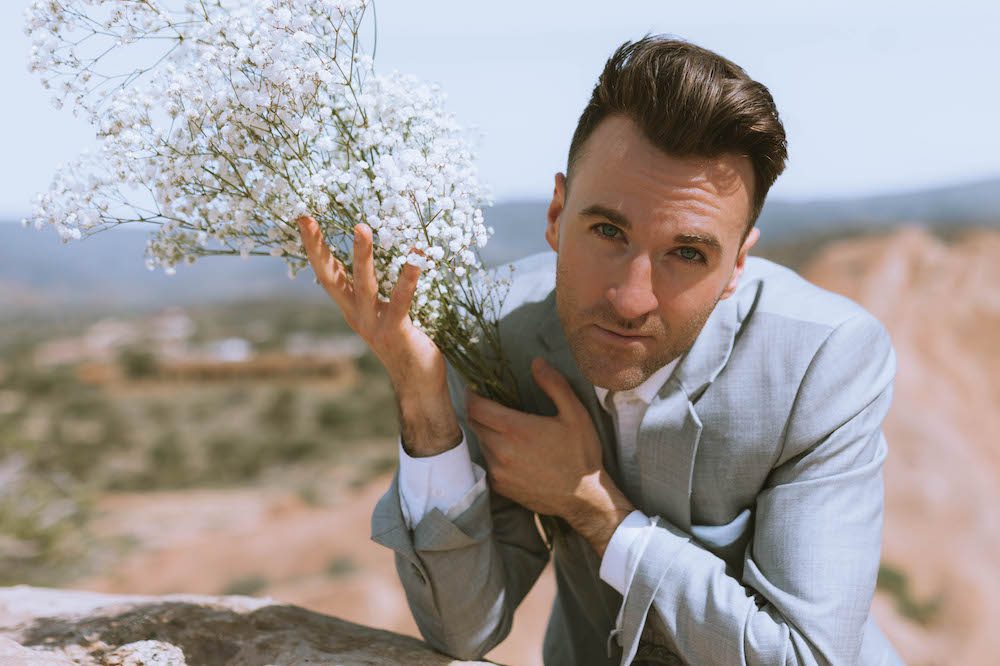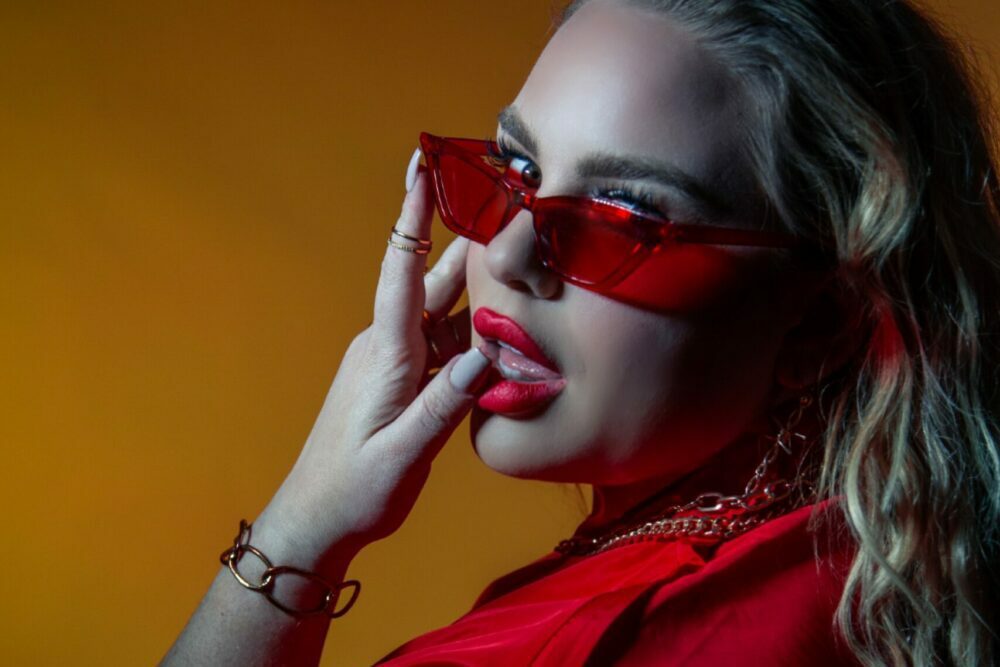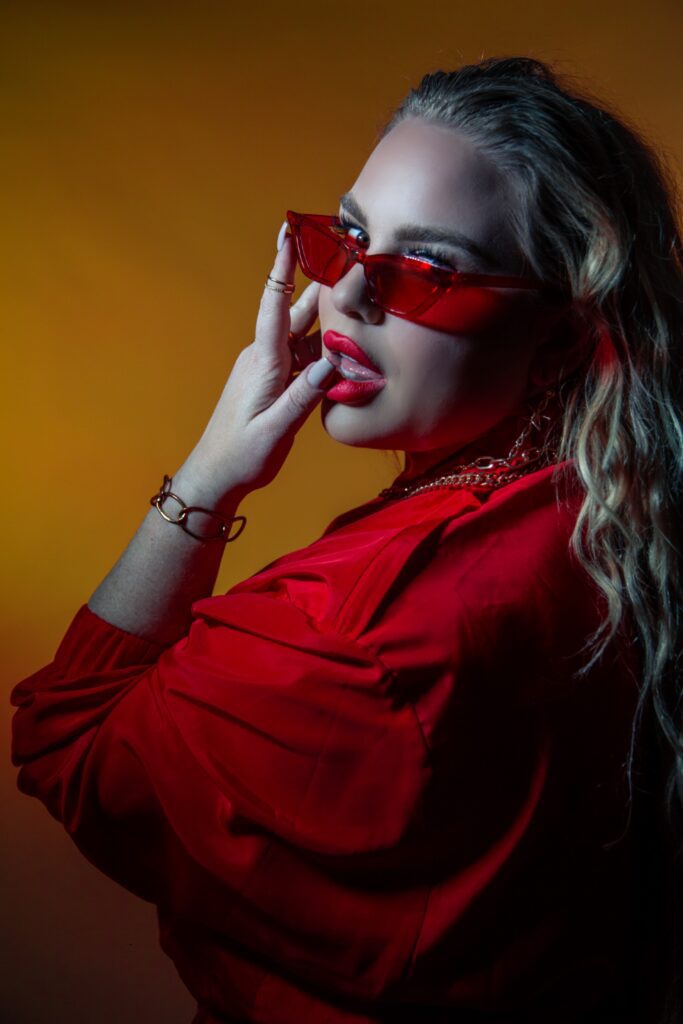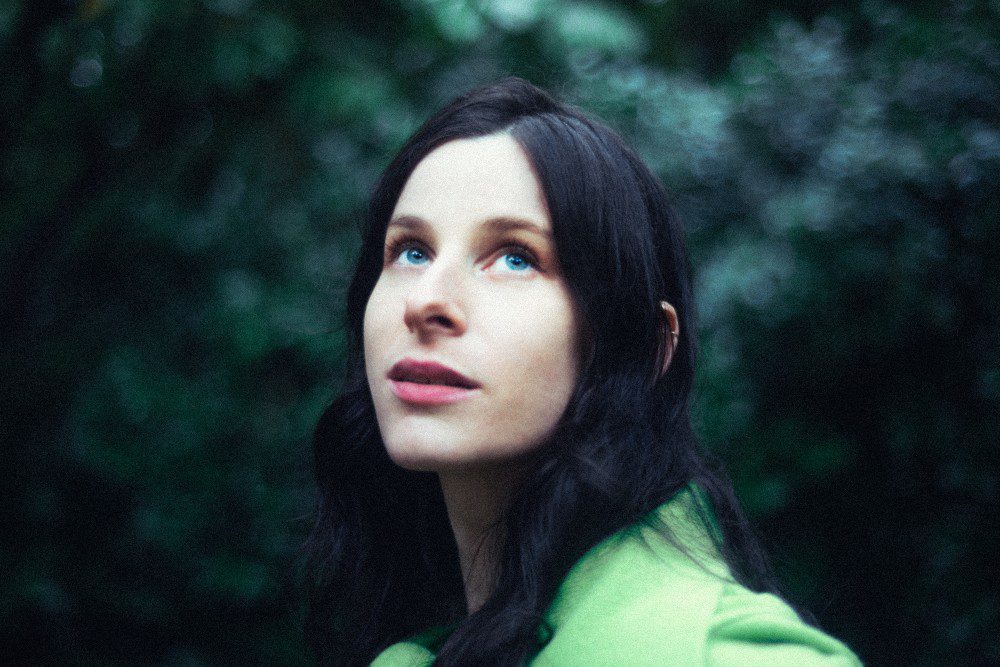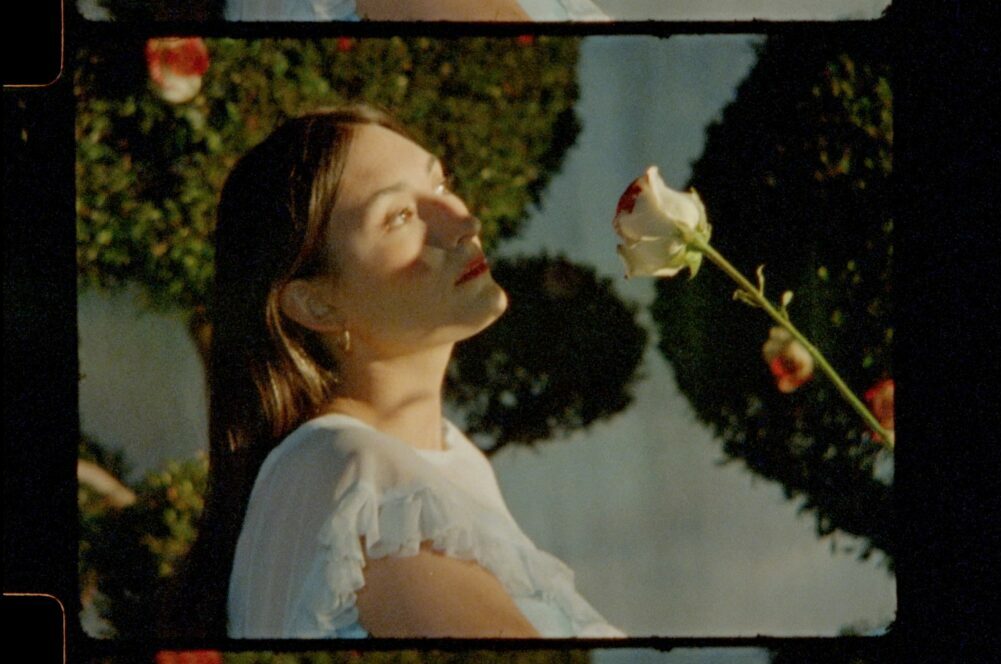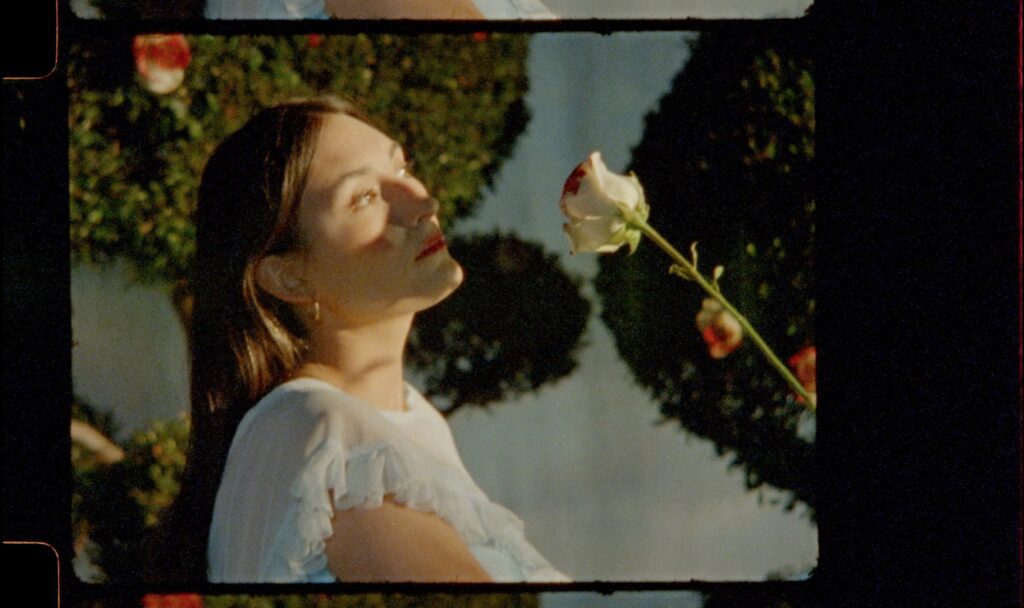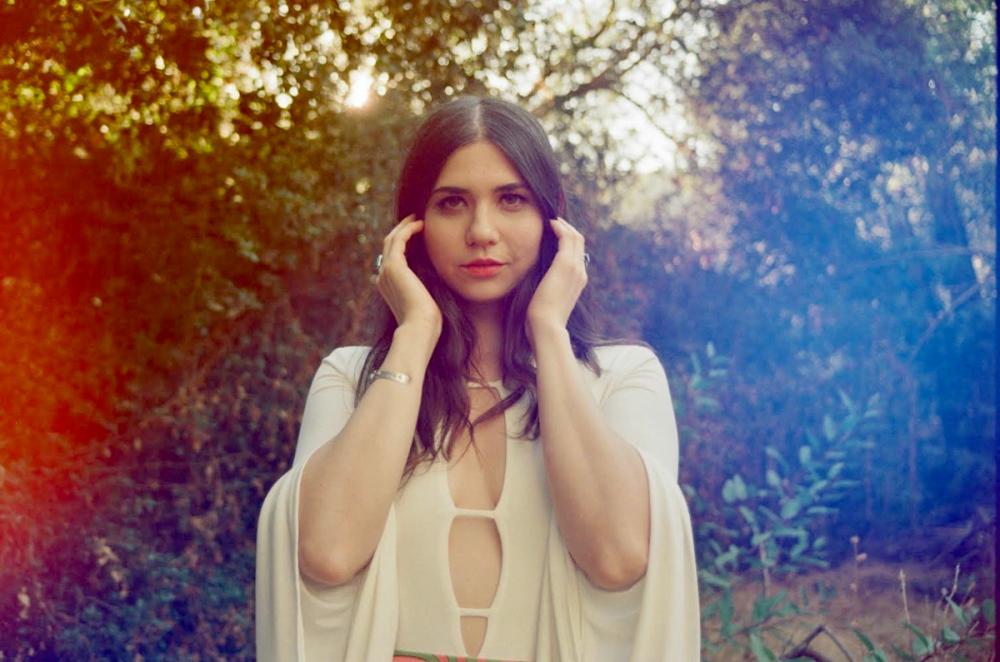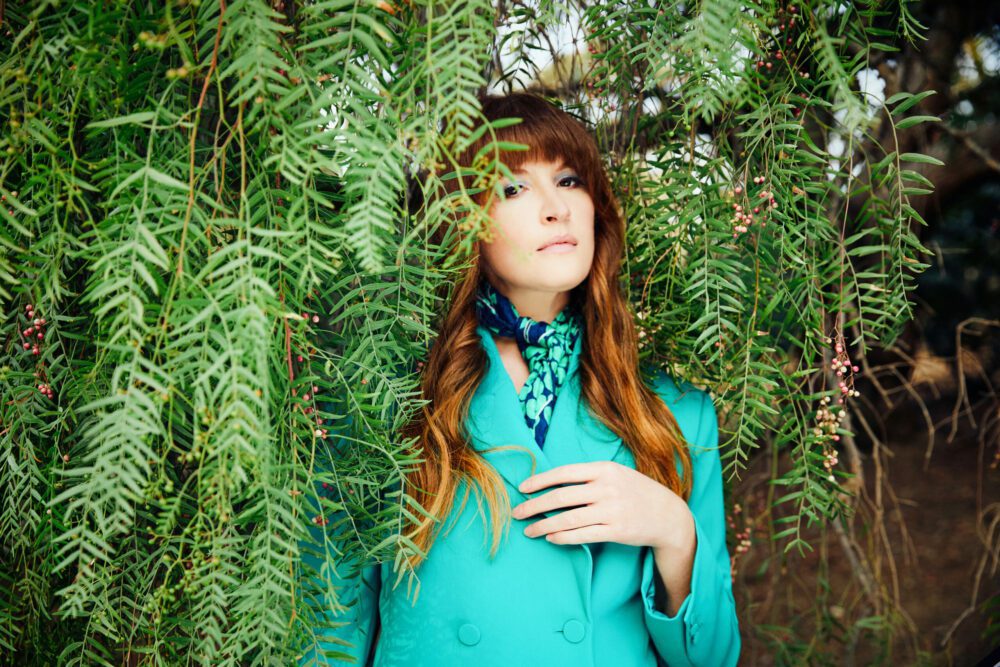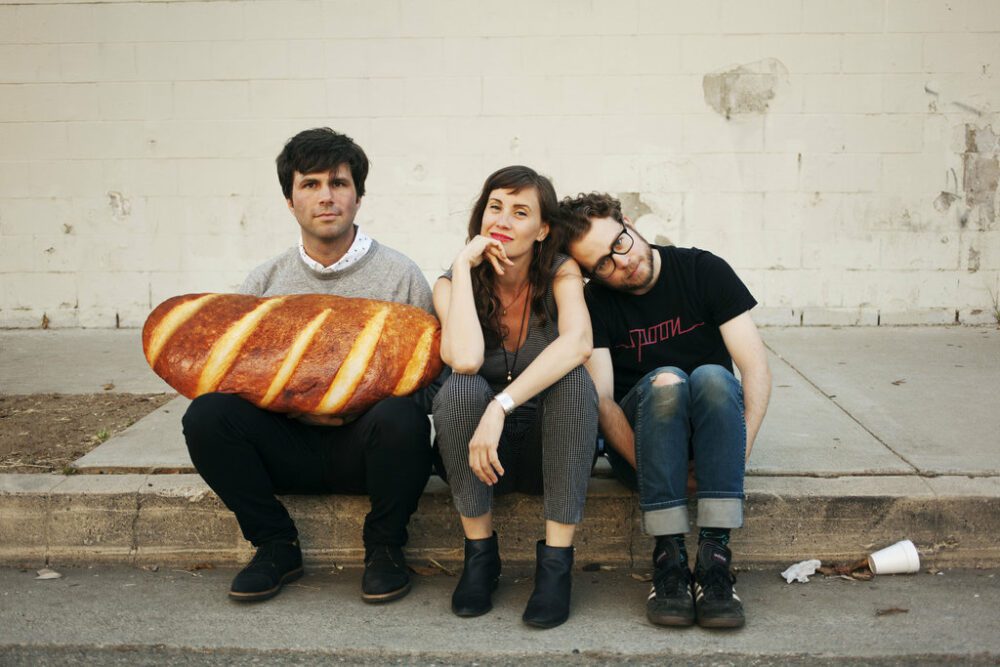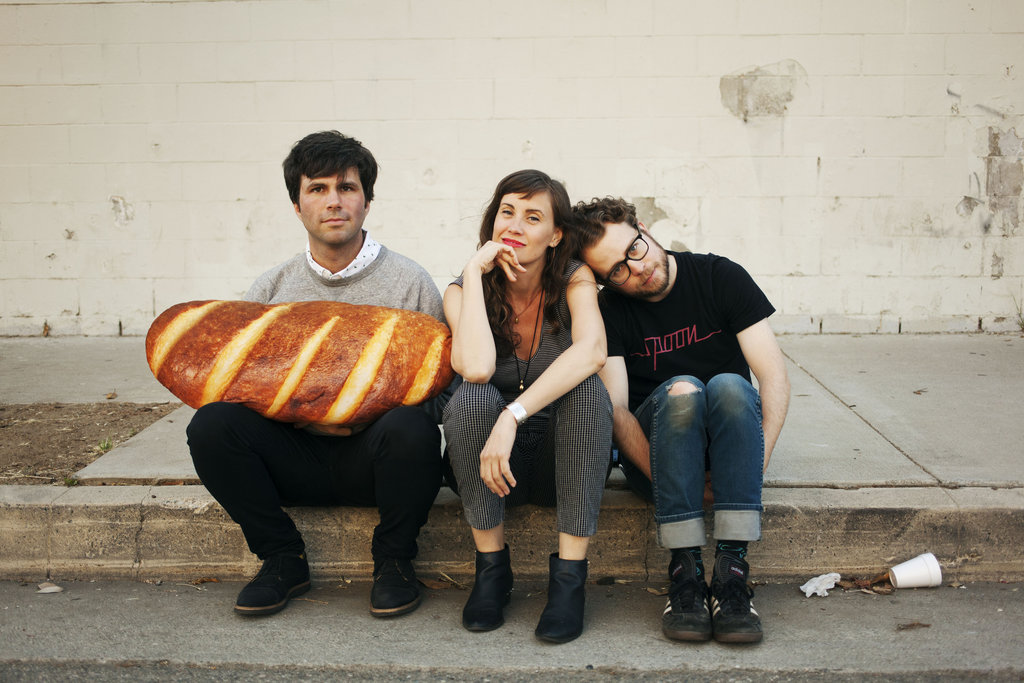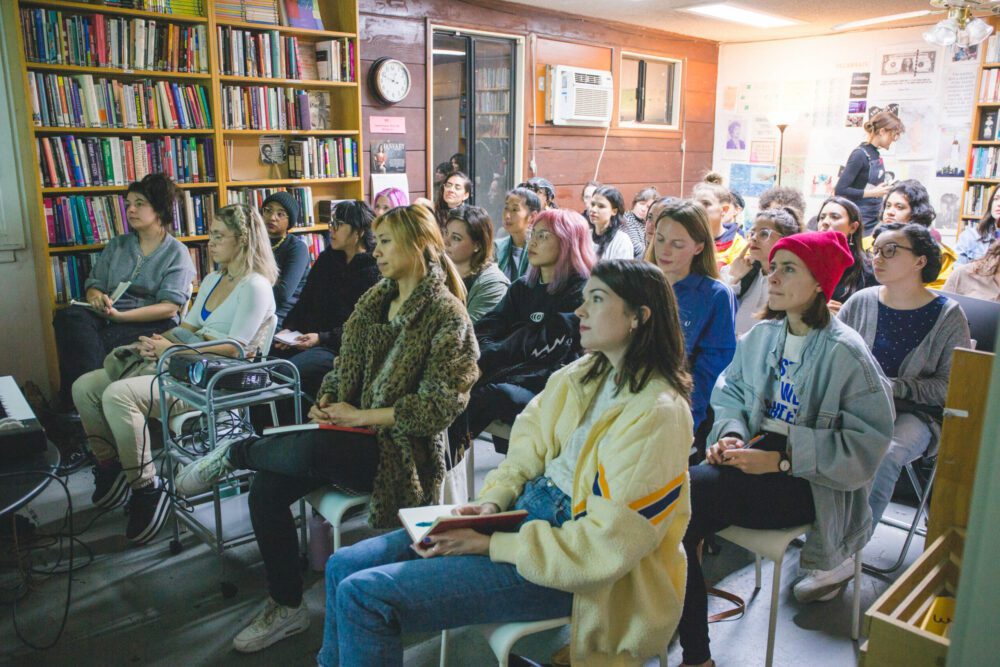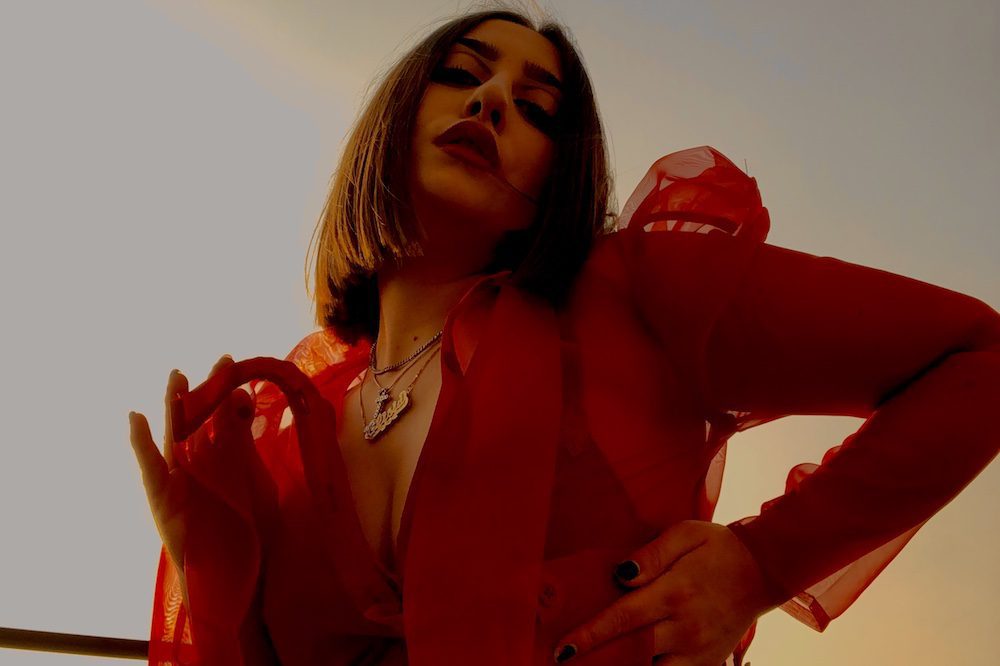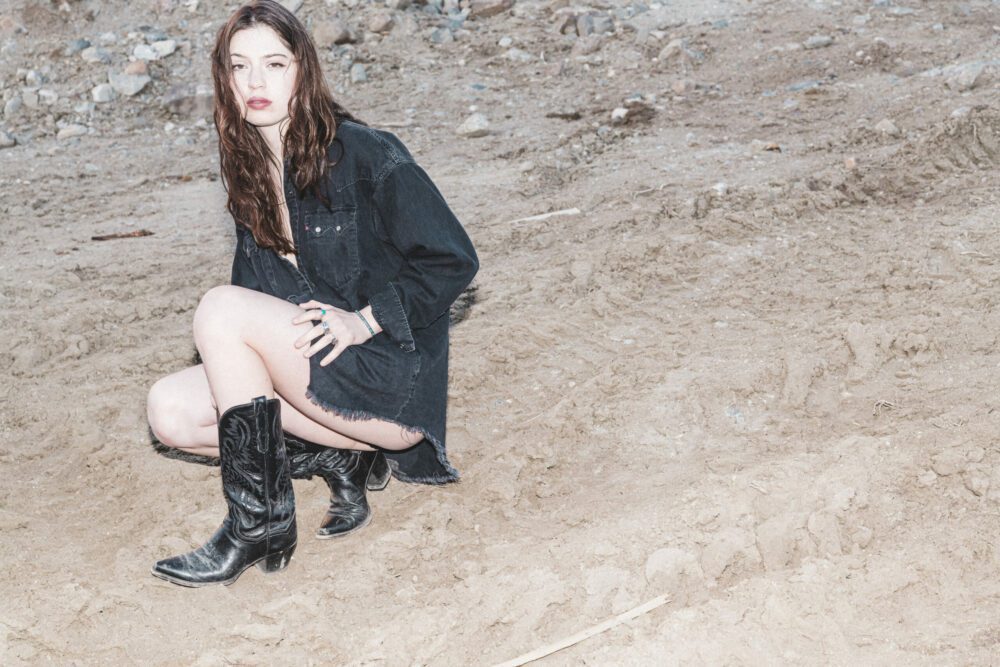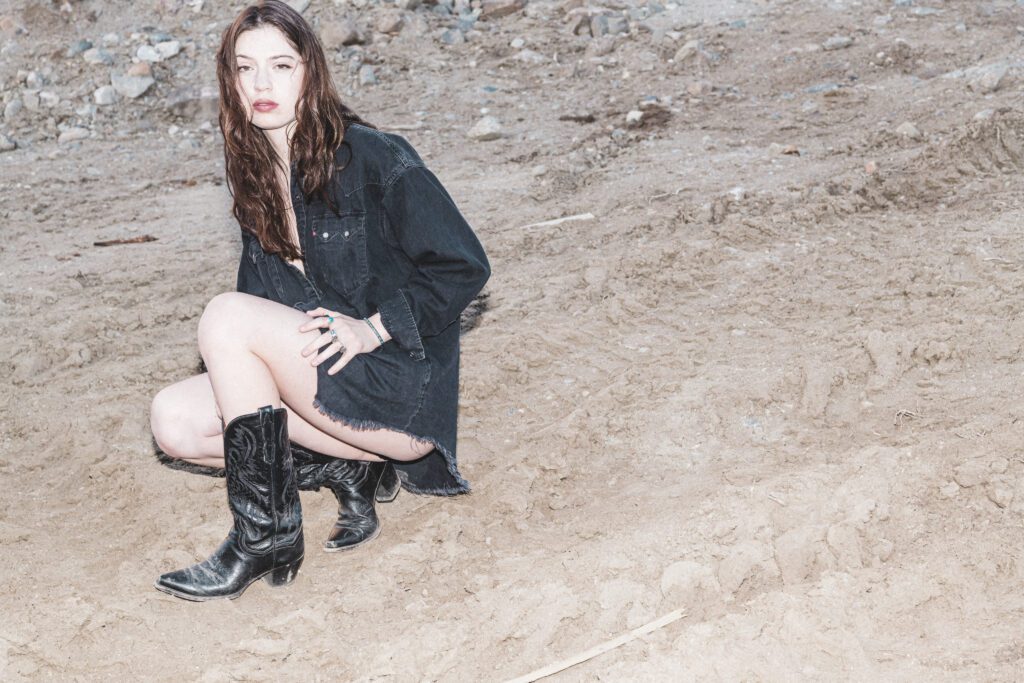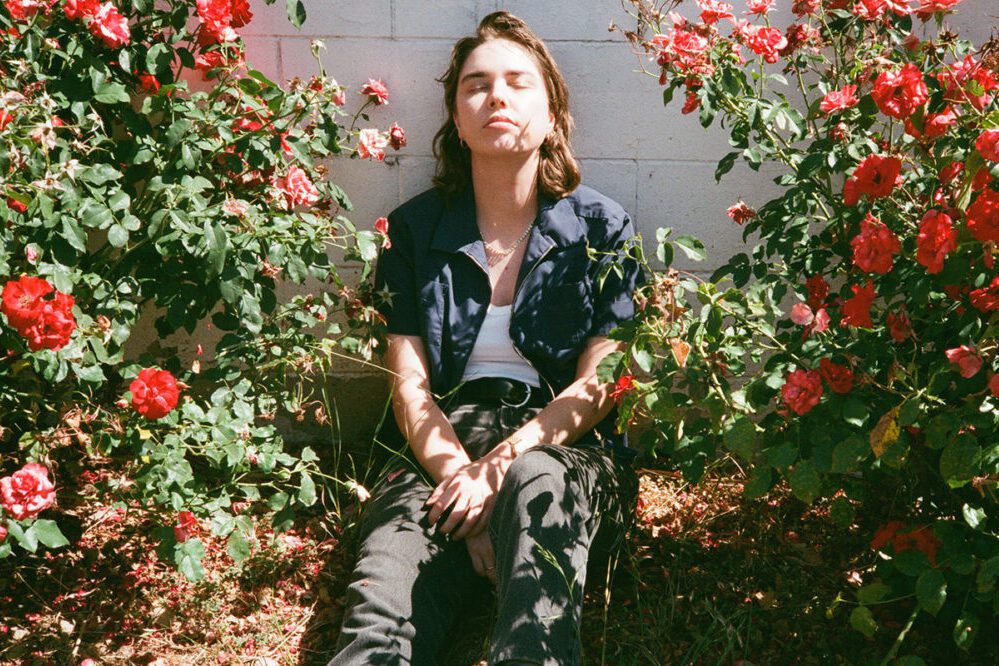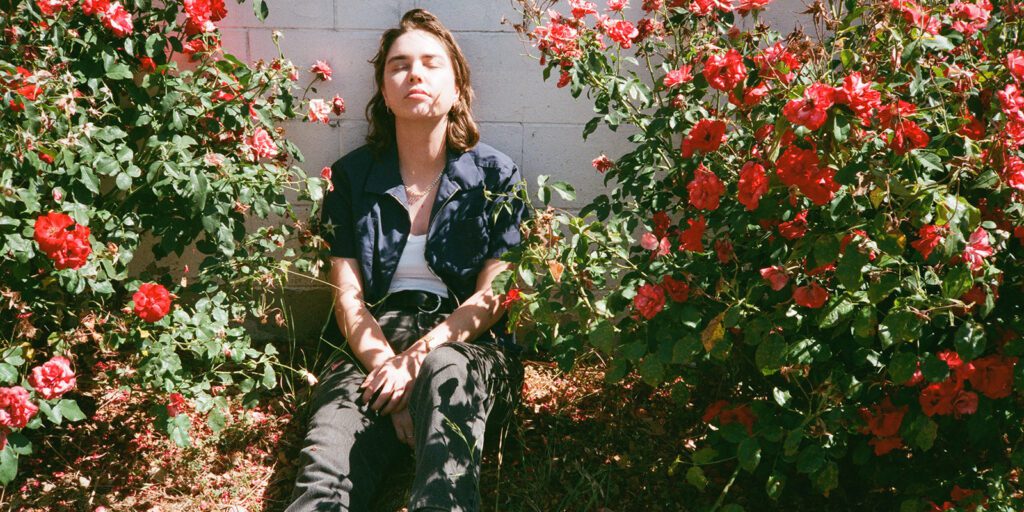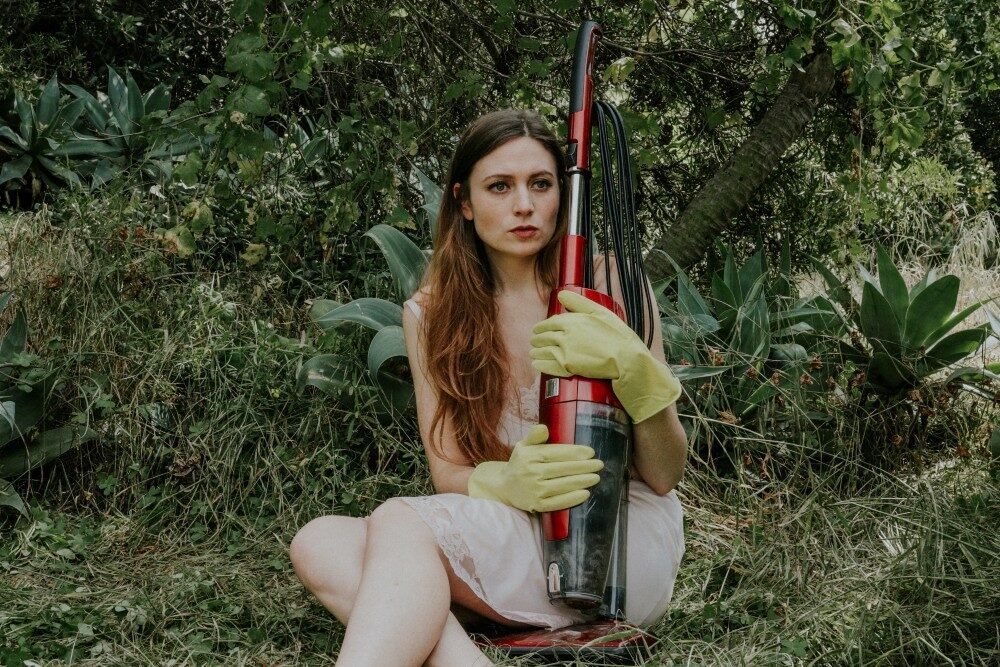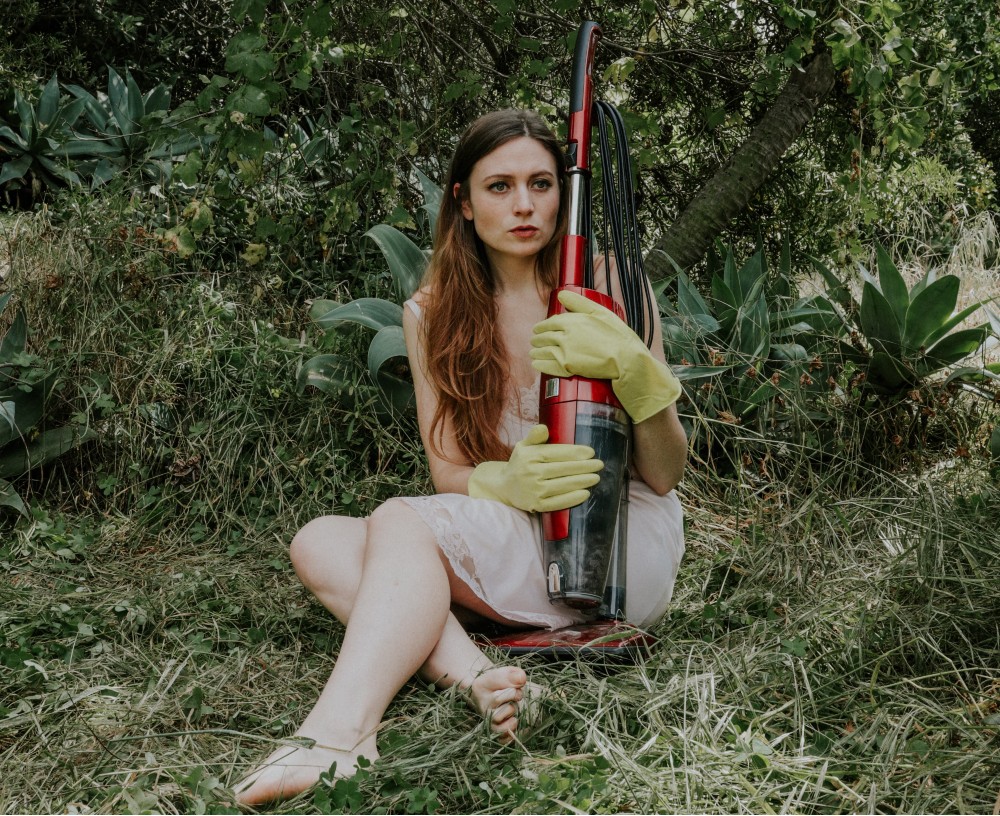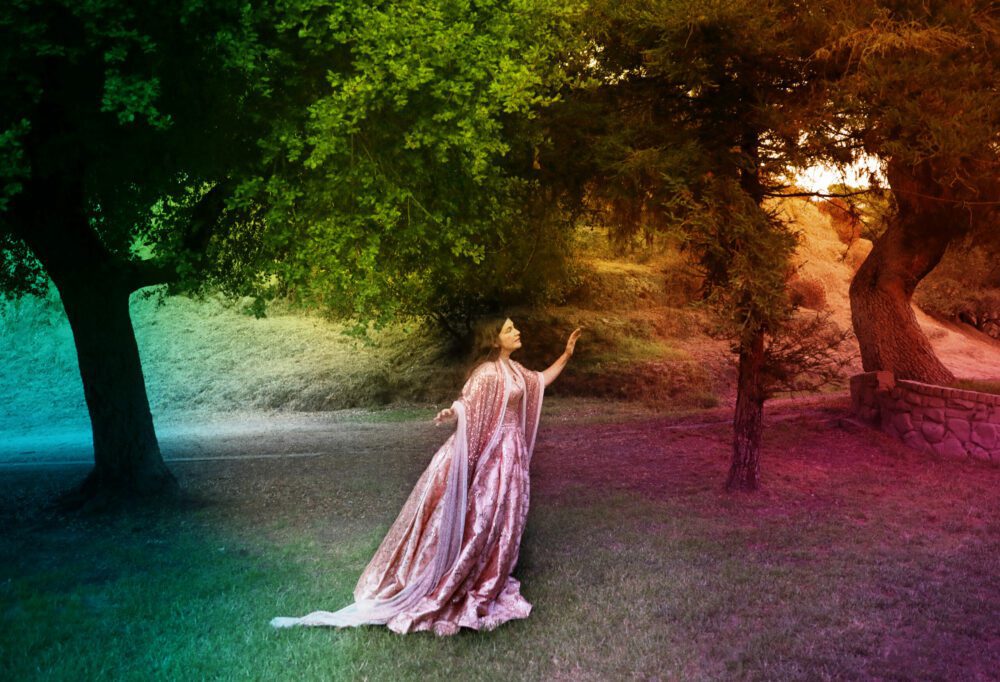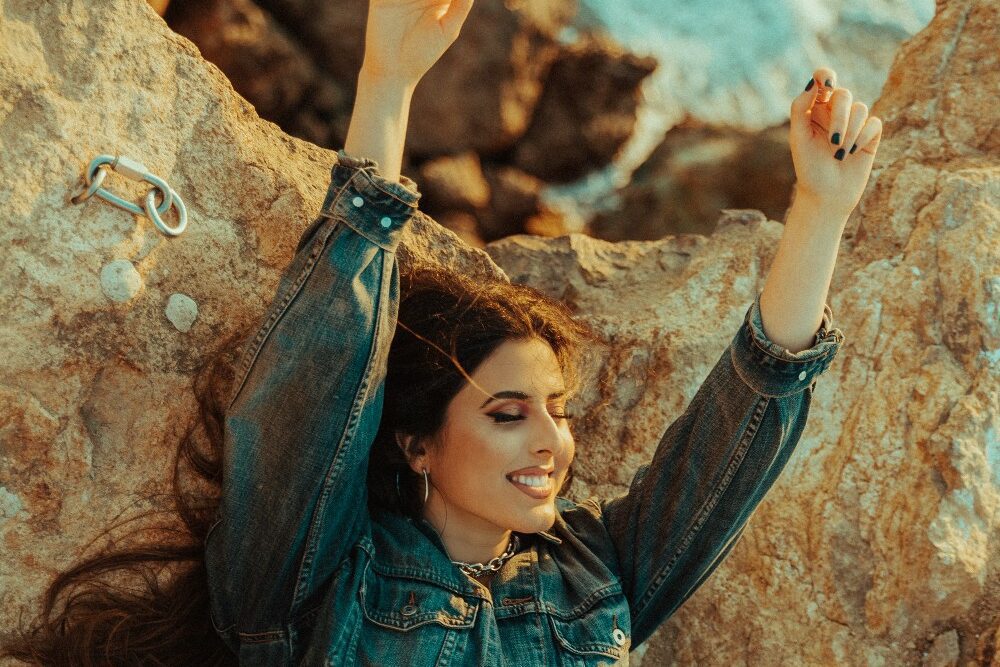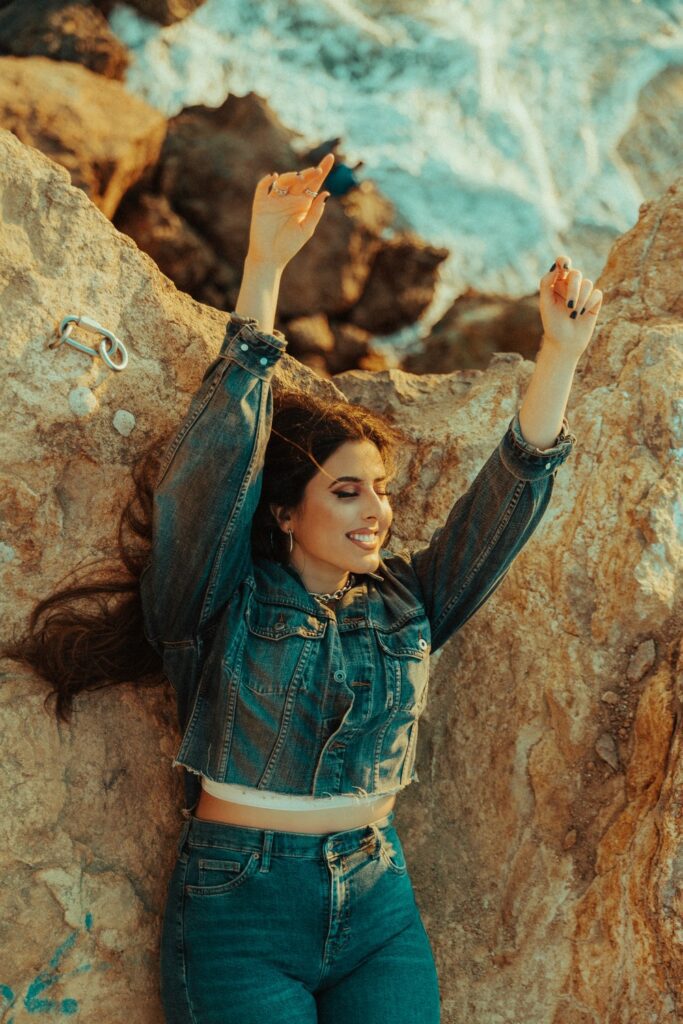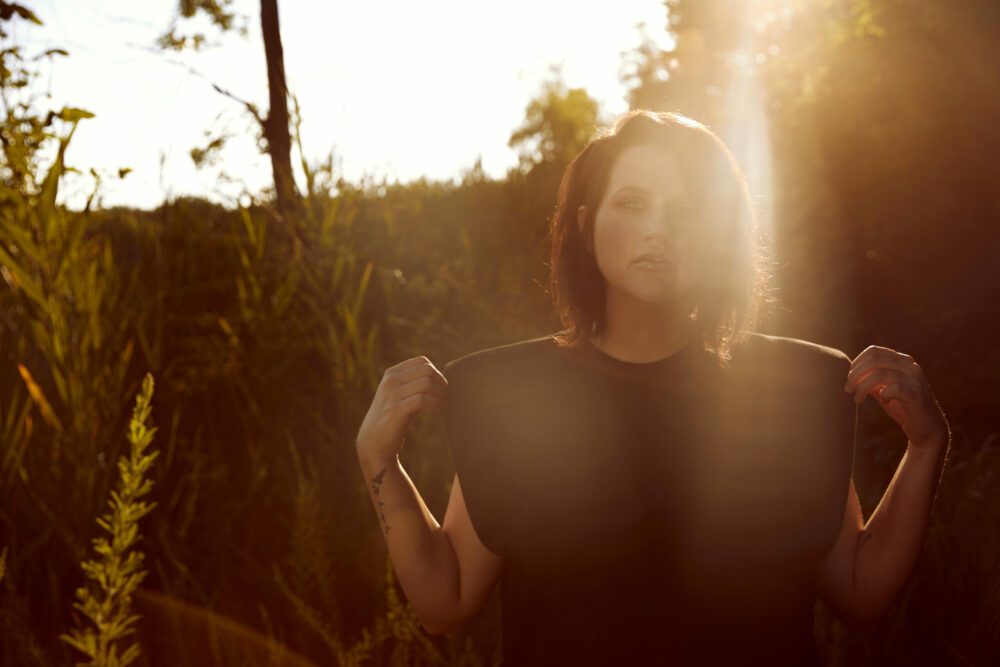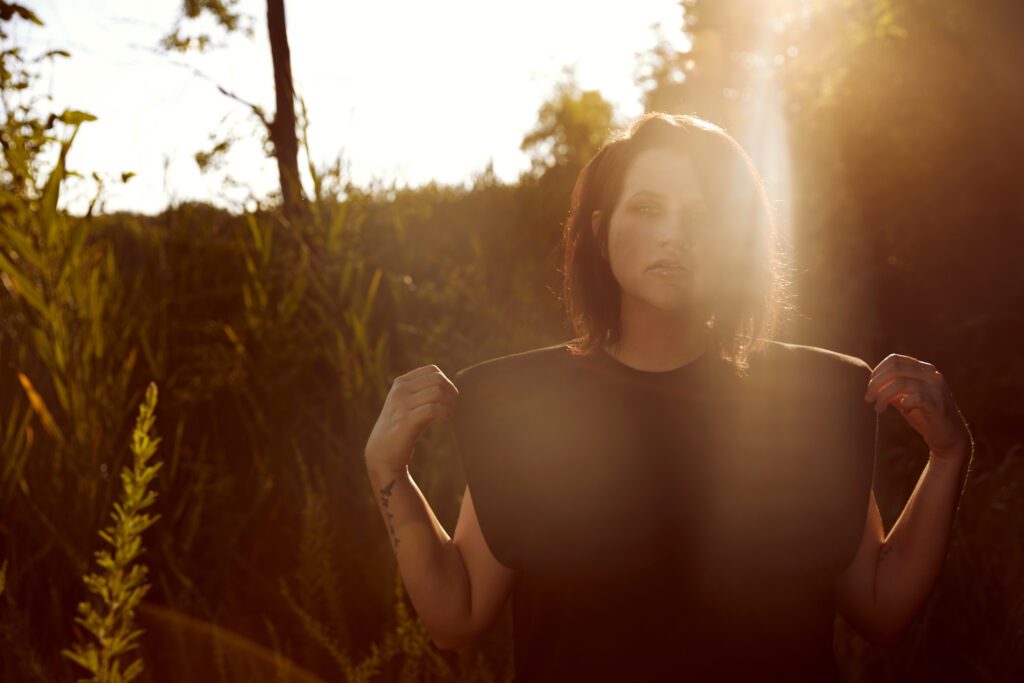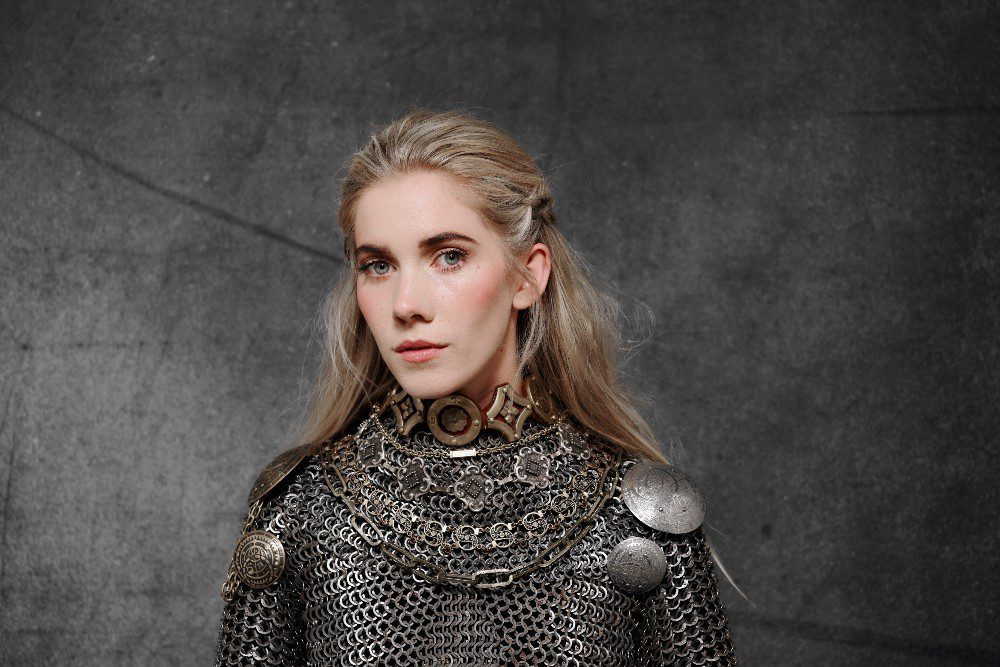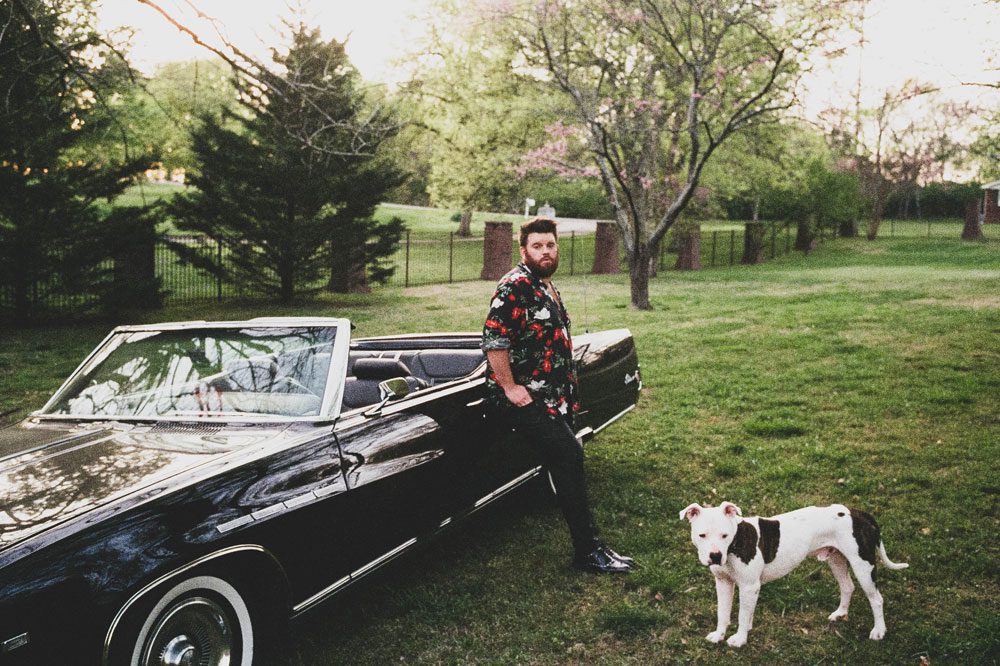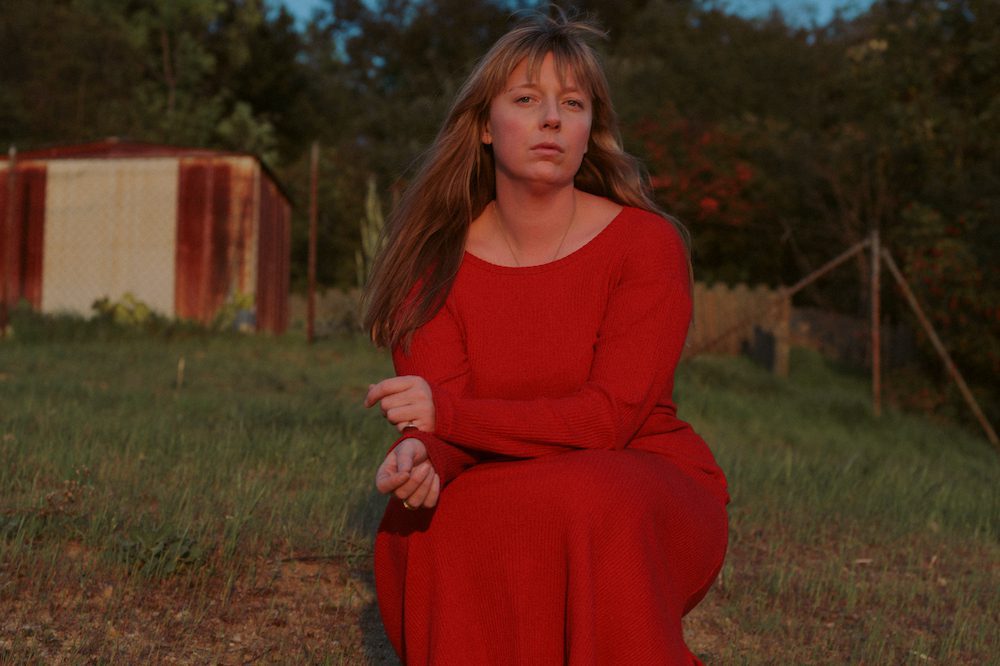

Life has put Sweetlove through the wringer. In the span of a year, she lost three of the most important people in her life; with her new EP, Goodnight, Lover, out Friday March 26, she sifts through the craggy, ashy rubble of death and tragedy to rediscover hope and what it means to truly live. Finding closure is never easy, and it often comes with a heavy price.
“I think just by being alive and human we are bound to experience hardship, suffering, and heartache. It’s the price of being human in the world,” the singer-songwriter tells Audiofemme. “And I think it’s a hard lesson to learn, especially for Americans. I’ve had the good fortune to travel quite a bit, and I’ve come to realize it’s a very particularly American idea to believe that somehow you can avoid suffering or bad things happening to you by doing all the ‘right’ things.”
Living in Los Angeles has been particularly enlightening in this regard. “There’s a lot going on, and everyone is beautiful, and there’s a great driving energy to it. It’s easy to think that if you do everything right, then everything should go right for you,” she continues. “But I think the price of being alive is that there is always another side to the coin, and no matter how brightly the sun shines on you, it always goes down eventually. There is a great deal of value in allowing yourself to be fully in the moment, even if it’s a bad moment. Let the rain fall, and let yourself grieve what you lost or what you never had in the first place.”
Sweetlove learned this lesson the hard way, beginning with the 2017 death of her oldest friend Matt; he’d been diagnosed with schizophrenia in his 20s, and untreated pneumonia claimed his life on Christmas Day. Less than a year later, family friend and former love David, who’d served as a medic in Iraq, took his own life on Thanksgiving 2018. The final blow came in January 2019, on David’s birthday, when Sweetlove’s cousin Teddy passed away after a long, arduous battle with alcoholism. Knowing all this heightens the brutal emotional pendulum of Goodnight, Lover, swinging between relentless and cathartic as Sweetlove clusters these stories – and every ounce of pain – into six songs, a compact portrayal of some of the darkest times she’s endured in life.
“Honestly, I don’t know that I will ever let go of all of it as long as I’m alive. I think it may be something that lives with me, like a shadow,” she muses. “Not necessarily in a debilitating way, or like I’m always living in the past, but just something that’s always with me, maybe more like a companion. “
Sometimes, you have to step into your misery and write it out before you can move on. As most songwriters can attest, there’s really no other option. “I found my calling as a songwriter, a healer, and a storyteller. I’ve always loved to write, and I’ve always loved songwriting, but as I turned to it out of necessity and grief, I discovered how much I love it too, and that I have an affinity for it. And how incredibly healing it is,” she reflects.
A long-time songwriter by nature, frequently turning to pen and paper “for solace and as a way to make sense of what I was feeling,” something drastically shifted following David’s death. Songwriting became something “that I needed to do,” she says. “It was a place of solace and comfort, and a place where I could not only dive deep into what I was going through in a dedicated and supportive space, but where I could make something beautiful that could move and hopefully connect to others.”
During the creative process, her collaborators — which include such notable songwriters as Jay Stoler (Selena Gomez) and Zach Berkman (Ron Pope) — would toss out lines, and she would soak them in to “decide if it really resonated with how I was feeling. And then I could get really clear about what was true. It was such a gift,” she says. “When you write songs, part of the process is saying things out loud to see if they feel or sound right, not just musically but personally.”
Sweetlove’s deep emotional and psychological work feeds directly into the EP’s fresh vocal approach, as well. Goodnight, Lover, produced by Justin Glasco (The Lone Bellow), contains songs which are “somewhat of a softer, more conversational singing style than I’ve ever used before, and I really like it,” she says. “I feel like I can let the songs tell their stories instead of having to do some impressive vocal performance all the time. And I hope that honesty comes through in the songs.”
Where the title cut sways with a smoldering, ballroom-like quality, “Did You Even Know” gallops and lurches ahead with a sturdy, rhythmic gait. “When your days are numbered, you count them slower,” she unravels, setting up the tremendous guilt and regret still coursing in her brain.
Suicide, as Sweetlove found out, fosters a different kind of grief, one that rips and shreds you into ribbons. “You really spend a lot of time going back and wondering if you could have made a difference in some way. There’s a lot of looking back,” she says. “I don’t know if I will ever shake that off, entirely — that ache of losing what could have been, and the regret of knowing that someone that was so beloved was so tortured and felt so alone. But I do hope that every day I live my life in such a way that I honor his memory and keep it alive. He was one of the most alive people I ever knew; I’d like to embody that more and more.”
“I hope that I can honor David’s memory by trying to live my life every day going forward so that I have no more regrets,” she continues. “I know that’s easier said than done, but it’s a very David thing to do, and I like to think that he’s out there soaring around me reminding me not to take myself so seriously.”
Though the losses in her life left her feeling “unmoored,” Sweetlove gained some perspective, too. “Things that used to matter to me didn’t matter much anymore. I stopped wearing makeup most days because at first I didn’t have the energy and then I just didn’t care that much,” she says. “I didn’t do anything or see anyone that I didn’t want to. And there’s a freedom in that – in letting go of a lot of the things you used to worry about that just don’t seem that big any more in the face of real loss.”
With talk of death, there comes an inevitable discussion on the afterlife. What’s next? “Oh man, that’s the million-dollar question, isn’t it?” Sweetlove shoots back. Having grown up in a religious home, most people in her life “were very certain about what comes next and how you have to watch your step in this life to make sure you get to the right place in the next one,” she recalls. “The more I learned and studied, the less I was certain about any of it.”
To deepen that understanding, she attended Azusa Pacific University, graduating Magna Cum Laude as a Biblical scholar, “not because I was certain about a specific kind of theology, but because I was fascinated with the conversations around life and death and meaning — and making sense of what I was taught and how it ended up feeling so small and fear-based to me,” she says. “I was taught that the world was a certain way, and once I allowed myself to invite other ideas in, the world opened up for me. Maybe that’s the afterlife.”
Her favorite description of the afterlife comes from The Great Divorce, by Chronicles of Narnia author C.S. Lewis, whose works she studied in college as well. “The Great Divorce is an envisioning of the afterlife where once you die, the person you most loved comes down from some version of heaven and tries to get you to let go of anything you were holding on to in your life,” she describes. “If you can do that, you become larger and more solid and a more vibrant version of yourself, and you move into a joyful space.” But if you can’t, well then you simply “shrink down and become very small, and you can’t go any further. In fact, you even have to return to an even smaller space.”
“That seems like a pretty good metaphor for life, no? The great offenses in life and your ideas of yourself that you can’t let go of end up making you smaller and less alive,” Sweetlove says. “I want to be more alive. How that looks when I shuffle off this body is anyone’s guess. I personally suspect it’s more abstract than our minds can imagine, but I’m very curious to see how it turns out. I sometimes wonder what Matt and David and Teddy know now that I don’t know yet.”
Taking a moment, she collects herself. As she reassesses her life, putting her pain on full display, she considers what she’s learned most through her grief. “Beauty and pain come in equal measure,” she offers. “Grief is the great leveler. We should always be kinder than we think we need to be, because we never know what someone else is going through. “
“Life is short — not just because your own passes more quickly than you think, but because you never know how long you will have with the people that you love,” she adds. “If I could see Matt or David or Teddy again, would I care what I was wearing, or if I wasn’t at whatever weight or beauty standard I thought I was supposed to attain, or how many followers I had on Instagram? There’s nothing wrong with finding joy in these things, but they don’t have to define you. These days all that matters to me is love — to be with my friends and family, my nephews, and fellow artists. I just want to be with the people I love, as much as I can. And to make music, which to me is a form of love.”
Follow Sweetlove on Twitter and Instagram for ongoing updates.

